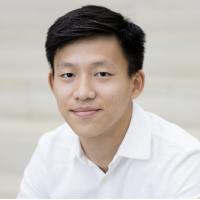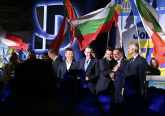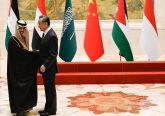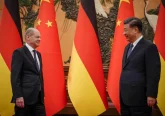During the 2019 Anti-Extradition Bill protests in Hong Kong, activists made extensive efforts to internationalize their movement, engaging in public diplomacy and lobbying foreign governments to support their cause. The Hong Kong pro-democracy lobby—a loose coalition of individuals and organizations aiming to steer Western foreign policy in a direction they believe will benefit Hong Kong’s democratic prospects—emerged amidst this unprecedented grassroots mobilization. Four years on, however, the Hong Kong lobby is facing an uncertain future. Activists are striving to overcome the barriers posed by transnational repression and reinvent their image in today’s fraught geopolitical landscape.
Two factors explain the success of Hong Kong activists in constructing and consolidating their lobbying infrastructure in 2019. First, the expansion and transformation of the protestors’ structure of mobilization. The formation of a ‘Hong Kong diaspora’ distinct from pan-Chinese immigration communities is a relatively recent phenomenon, emerging during the 2019 protests, when overseas Hongkongers coalesced to raise international awareness of the protestors’ demands. They founded new diasporic groups and organized 139 protest events in more than 58 cities around the world. While many of these overseas events were coordinated by self-motivated individuals unaffiliated with any prior networks or formal organizations, they were often supported by activists and politicians with international recognition.
Organized advocacy groups emerged to give a more structured, coherent voice to the decentralized grassroots movement. Non-profit organizations such as the US-based Hong Kong Democracy Council and the UK-based Fight for Freedom, Stand with Hong Kong established systematic contact with officials and politicians in the West. They regularly testify in parliaments about Hong Kong’s human rights situation, produce research and recommendations about potential policy response to deteriorating freedoms in Hong Kong, and participate in policy strategizing sessions with decisionmakers.
The second reason why Hongkongers have managed to build a durable presence in Western politics is external. The pro-democracy lobby emerged as the United States was abandoning its long-standing policy of engagement with China in favour of ‘strategic competition.’ Between 2017 and 2020, the Trump administration waged a trade war with China, hardened its rhetoric against Chinese ‘economic aggression’, adjusted the US military framework to counter China’s rise in the Indo-Pacific, and imposed sanctions on Chinese officials for committing human rights atrocities in East Turkestan (Xinjiang). The Biden administration has largely continued this trend of increased confrontation—with added emphasis on the ideological ‘battle between democracy and autocracy.’
Hong Kong symbolises the failure of US engagement policy, which wagered that deepening commercial, diplomatic, and cultural ties would foster liberalization in China. Once a bastion of freedom and the rule of law, Hong Kong long served as a base for supporting China’s democracy movement. In 1989, Hong Kong citizens provided financial, logistical, and rhetorical support to student-led protests in Tiananmen Square. For the next three decades, Hong Kong was the only place in China that held public candlelight vigils commemorating the victims of the Tiananmen Massacre. The crackdown on the 2019 protests and the imposition of the draconian National Security Law (NSL) in 2020 have extinguished hopes that Hong Kong could preserve its own liberties, let alone support China’s democratic development. These events demonstrated that the Chinese Communist Party (CCP) had no interest in conceding to liberal values, such as freedom of expression and the protection of human rights. The dismantling of Hong Kong’s autonomy has convinced some US observers—including Biden’s top Asia official Kurt Campbell—that ‘America got China wrong’, further weakening engagement policy’s credibility.
US-China competition has provided Hongkongers with a fertile ground to ‘localize’ their concerns within their respective host countries’ (geo)political agendas. As one US-based lobbyist put it bluntly, his job is ‘to frame the issue of the Hong Kong movement from the perspective of US political interests.’ The most explicit example of linking the pro-democracy movement with Washington’s strategic interests can be found in a 2022 report published by the Committee for Freedom in Hong Kong Foundation (CFHK), a Washington-based organization. In the report, Olivia Enos argues that ‘any effort to out-compete China necessitates the preservation and protection of freedom in Hong Kong.’ CFHK’s recruitment of Enos – who previously advised US Congress on its Asia policy – to spearhead its Washington operations demonstrates that access ‘inside the Beltway’ and expertise in national security are viewed as vital assets to propelling Hong Kong’s democracy movement.
The two key factors that undergird the success of Hong Kong’s ‘international front’ in 2019— (i) the energy unleashed by protest mobilization, and (ii) the unique geopolitical context—can no longer be taken for granted. Transnational repression has eroded the ability of diaspora groups to effectively organise themselves. The NSL contains an extraterritoriality clause, asserting that people can be prosecuted for things they have done outside Hong Kong. This has deterred Hongkongers, especially those who intend to travel back home, from taking part in political activities even in democratic countries. A recent survey has found that Hongkongers who plan to return are more likely to feel ‘unsafe’ or ‘very unsafe’ while participating in public demonstrations, rallies, or assemblies related to Hong Kong affairs in the UK. If left unaddressed, other forms of transnational repression—including counter-protests, assault, and harassments by pro-Beijing individuals and groups—could further depress the diaspora’s participation in Hong Kong affairs.
While most organized advocacy groups are headed by individuals who have no intention of returning to Hong Kong and are therefore less susceptible to the NSL’s chilling effects, transnational repression deters others from joining their work. The Hong Kong police has issued a HK$1 million bounty for eight self-exiled activists, all of whom have participated in high-profile efforts to internationalize the movement. The police have also detained and questioned the relatives of these activists, signalling that it is dangerous for anyone to associate with these individuals. Without the ability to recruit new talent from the Hong Kong diaspora and to freely associate with grassroots organizations, advocacy groups risk losing vitality in the long run.
Furthermore, the attention that Western capitals have given to Hongkongers since 2019 might be waning. In a sense, the Hong Kong lobby has become a victim of its success: Hongkongers have sounded the death knell of so resoundingly that competition China has become common sense. US-China rivalry has intensified in the economic, technological, and military domains, and one could argue that the normative aspect of the competition, for which Hong Kong holds significant value, is taking a backseat. For instance, the Biden administration has softened its democracy-versus-authoritarianism rhetoric while fostering relations with backsliding India and autocratic Saudi Arabia.
The challenge facing pro-democracy Hongkongers is how to stay relevant in an international landscape characterised by realpolitik. To be sure, academics and analysts have long highlighted Hong Kong’s centrality to China’s economy due to its international connectedness and the rule of law. This has led to new opportunities for Western governments to use Hong Kong as a geoeconomic asset. Washington has already taken measures to exploit Hong Kong’s importance to China, by revoking Hong Kong’s independent customs status in 2020, ending US preferential treatment of Hong Kong. This begs the question: what does Hong Kong democracy stand to gain from being a pawn in a broader geopolitical chessboard?
This is where Hong Kong’s democracy movement is entering uncharted waters. During the 2019 protests, activists drew on the concept of ‘lamm chau’ or mutual destruction to emphasise how international politics could advance Hong Kong’s democratic prospects. Activists persuaded foreign governments to sanction Hong Kong and undercut its status as a global financial centre, harming PRC interests in the process. The scorched-earth ethos behind lamm chau is arguably that of vindictiveness. Yet, it can also be viewed as a folk theory among Hong Kong’s pro-democracy circles that postulates that the PRC, when faced with immense international geopolitical pressure, is more likely to concede to societal forces of liberalisation.
There is little way of knowing whether this folk theory of change will ultimately succeed. What has become clear, however, is that Hongkongers’ mobilization in 2019 and their observation of Western responses have convinced them that geopolitics and democracy are deeply intertwined. As long as geopolitical fissures keep creating room for diasporic voices in Western policy circles, the pro-democracy Hong Kong lobby will be here to stay.
Note: This article reflects the views of the authors and not the position of the DPIR or the University of Oxford.






